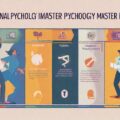Schema Therapy has emerged as a highly effective treatment for a range of psychological disorders, offering a unique integrative approach that combines aspects of cognitive-behavioral, attachment, psychodynamic, and emotion-focused therapies. As mental health professionals seek to expand their skills and knowledge, certificate and graduate programs in Schema Therapy are becoming increasingly sought after. In this article, we’ll explore the benefits of these programs, what they entail, and how they can enhance your professional practice.
Understanding Schema Therapy
Schema Therapy was developed by Dr. Jeffrey Young to treat personality disorders, chronic depression, and other complex psychological conditions. It is based on the concept of ‘schemas’ or maladaptive patterns that develop during childhood and continue to affect behavior in adulthood. Understanding these patterns is essential for therapists aiming to help clients break free from negative cycles and improve their mental health.
Benefits of Schema Therapy Certification
Obtaining certification in Schema Therapy can greatly enhance a therapist’s ability to provide comprehensive treatment. It signifies a deep understanding of core psychological processes and a commitment to professional development. Certified Schema Therapists are equipped with a robust set of skills that can be applied across various clinical settings, enhancing their versatility and marketability in the mental health field.
Key Components of Certification Programs
Certificate programs in Schema Therapy typically involve a combination of theoretical learning, practical training, and supervised practice. Participants learn to identify and challenge schemas, employ innovative techniques to facilitate change, and tailor their approach to individual client needs. Many programs also require the completion of a certain number of supervised therapy hours to ensure proficiency.
Choosing the Right Graduate Program
For those looking to delve deeper into Schema Therapy, graduate programs offer a comprehensive curriculum that includes research, advanced clinical training, and often a focus on specific populations or issues. When selecting a program, consider factors such as accreditation, faculty expertise, program format (online or in-person), and the balance between theory and practice.
Online vs. In-Person Learning Options
With the rise of digital education, many institutions now offer online Schema Therapy programs, providing flexibility for working professionals. However, in-person programs may offer valuable hands-on experience and direct mentorship. Evaluate your learning style and professional goals to determine the best fit for you.
FAQ on Schema Therapy Education
- What prerequisites are needed for Schema Therapy certification?
- Most programs require a background in mental health, such as a degree in psychology, counseling, or social work, and some clinical experience.
- How long does it take to complete a Schema Therapy program?
- Program lengths vary, but certification typically requires several months of coursework and supervised practice.
- Can I complete Schema Therapy training online?
- Yes, there are online options available, which provide flexibility while maintaining rigorous standards.
- Is Schema Therapy recognized internationally?
- Schema Therapy is practiced and recognized globally, with international certification bodies setting the standards for practice.
- What career opportunities are available after certification?
- Professionals can work in private practice, hospitals, or mental health clinics, and may also have opportunities in teaching and research.









